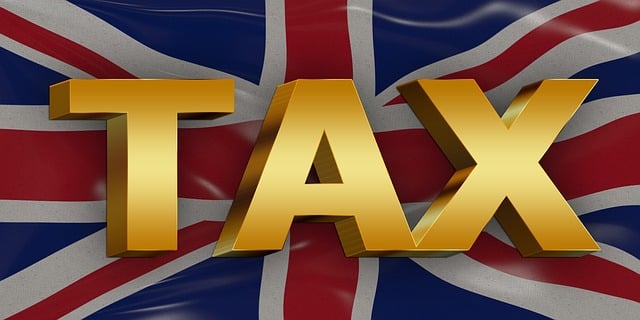Starting a new business is an exciting journey but do new businesses pay tax in the first year UK?. Though you have full of fresh ideas, ambition, and the hope of building something meaningful, do you know about taxes? Along with it, comes the more practical side of running a business such as taxes.
One of the most common questions new business owners ask is: “Do I have to pay tax in my first year UK?” It’s a fair question. Though tax rules might seem complicated at first, they’re easier to manage once you understand the basics. In your first year, paying taxes depends on several factors.
This guide is here to walk you through what you need to know. We’ll simplify the different tax types so that you can understand them easily. Also, we’ll explain when they’re due, and help you avoid common first-year mistakes.
Do New Businesses Pay Tax in the First Year UK?
Yes, new businesses in the UK who are in their first year may need to pay tax. Moreover, the details depend on how your business is set up and how much income you generate. Tax obligations don’t begin the moment you register. Instead, they’re linked to your profits, accounting period, and the type of business you run.
In the case of limited companies, the primary concern is Corporation Tax. You are required to register for Corporation Tax in alliance with HMRC. Your first accounting period usually covers 12 months, and tax is calculated on profits earned during that time. That means, depending on your timing, your first tax payment could land in your second year of business.
In case of being a sole trader or in a partnership, your income is taxed after evaluating under the Self-Assessment system. Registration with HMRC in your second trading year is needed within the deadline of 5th October. Then, you’ll submit a tax return showing your first year’s income, expenses, and profit.
It’s also worth noting that new businesses don’t get an exemption from tax in their first year. Well, if the business is not going well, you might not need to pay anything. You may still need to report your figures to HMRC. Even in your first year, failing to file or register can result in penalties, even if no tax is due.
Another consideration is VAT. While not all businesses need to register for VAT right away, if your taxable turnover exceeds the £90,000 threshold (as of 2024/25), you must register and begin charging VAT. That responsibility could arise in the first year, depending on your earnings.
Understanding UK Business Taxes
Starting a business in the UK brings with it several financial responsibilities. Taxes can seem confusing at first, but breaking them down by type and business structure makes it much easier to handle. In business depending on ownership, there are different tax rules to follow.
The most common tax for limited companies is Corporation Tax. This is charged on the company’s profits after allowable expenses are deducted. As soon as your business starts making profits, you’ll be expected to calculate and pay Corporation Tax. You also need to annually report a Company Tax Return.
For sole traders and partnerships, income tax is the key obligation. You’ll pay this through the Self-Assessment system. You report your business income and claim expenses to ensure the range of profit made by the business.
If the turnover is over £90,000 in a period of 12-month, registration for Value Added Tax is needed. Now, you have to charge VAT on the sales and submit returns reports to HMRC. VAT adds an extra layer of responsibility, including keeping digital records and adhering to Making Tax Digital (MTD) rules.
In the UK, keeping proper records, understanding what’s deductible, and staying ahead of deadlines are all vital. Many software and tools are available to simplify tax management. Tax doesn’t have to be intimidating, it just requires a detailed clarification.
Do You Pay VAT in the First Year?
One of the most crucial responsibilities for new businesses is VAT. Whether you need to pay VAT or not in your first year depends primarily on your turnover. VAT registration is compulsory in UK, when taxable turnover is over £90,000 within the period of 12-month. This threshold is updated occasionally. It’s wise to check HMRC’s website for the most current figure.
If your business starts small, you may take some time before registration. However, if your income grows quickly or you take on large projects early on, you may reach the threshold within your first few months of trading. Once your business hits the limit, you need to register and charge VAT.
Moreover, voluntarily registering for VAT can increase credibility in certain industries. Once registered, you’ll need to issue VAT invoices, maintain digital records, and use compatible software under the Making Tax Digital (MTD) initiative.
Your sell rate will influence the VAT rate you need to pay. Though there are less rates, 20% vat rate is the ideal one. You need to understand the rate that is applicable to your products. Especially when building your pricing strategy and managing customer expectations.
What If You Make No Profit in the First Year?
If you end your first year without turning a profit, it doesn’t mean your business has failed. Many startups invest heavily in equipment, marketing, staffing, or product development during their first 12 months. These early costs can easily outweigh initial revenue.
HMRC doesn’t penalize you for making no profit in your first year. If your business made a loss, you won’t owe Income Tax or Corporation Tax. But you should not skip filing your returns. You’re still legally required to submit your tax returns to HMRC. These documents prove your trading activity and demonstrate your business performance for the year.
Ultimately, making no profit in your first year is not a failure. What matters most is how you manage your finances, track your losses, and use the tax system to support your recovery and growth. Filing your returns accurately and understanding your options gives your business a stronger foundation for long-term success.
Common Mistakes New Businesses Make
Establishing a business can be adventurous, but it’s also bringing about challenges that catch many new entrepreneurs off guard.
Many new business owners underestimate start-up costs or overestimate early income. This influences cash flow. As a result, it becomes hard to pay suppliers, bills, or even stay afloat. Without a clear budget and realistic financial projections, businesses may face a rough time to deal with.
Another key issue is not registering with HMRC on time. It’s vital to inform HMRC of your trading status. Ignoring deadlines for registration, tax returns, or payments can result in fines. Even if your business isn’t profitable yet, these obligations still apply.
Many entrepreneurs also neglect proper record-keeping. Do not ignore the paperwork. Moreover, failing to track income, expenses, receipts, and invoices can cause major problems when tax season arrives.
A common misconception is that VAT and tax rules are only applicable to high profited businesses. In reality, even small start-ups must monitor their income against VAT thresholds. Ignorance of the rules isn’t a defense if HMRC investigates or issues a penalty. Staying informed can prevent these issues before they begin.
Another overlooked area is pricing products or services incorrectly. Some new businesses charge too little in a bid to attract customers quickly, failing to cover their own costs. Others price too high without understanding market demand, pushing potential clients away. Pricing should be strategic, based on both value and expenses.
Overlooking business insurance and legal compliance is another costly error. Without proper coverage, a single mishap can lead to legal claims.
Tips for Managing Tax in Your First Year
Managing tax in your first year of business can feel overwhelming, but with the right approach, it becomes much more manageable. Getting it right early on can save time, cost, and stress. Here are some key tips to help you stay on top of your tax responsibilities and keep your business running smoothly.
- Register Early with HMRC
Registering with HMRC promptly is essential. Not registering can lead to penalties, even if you haven’t earned much.
- Separating Business and Personal Finances
A dedicated business bank account can easily separate personal and business finance. It helps you track income and expenses more clearly, simplifies bookkeeping, and avoids confusion when it’s time to prepare your tax return.
- Maintaining Right Records from Day One
Record-keeping is an effective way in tax management to monitor finance. Store receipts, log expenses, and keep a clear record of all income. Use digital accounting software or apps to make this easier and to comply with Making Tax Digital (MTD) if you’re VAT-registered.
- Set Money Aside for Tax Payments
It can be tempting to reinvest every penny back into your business. Don’t forget that tax will eventually be due.
- Consider Working with a Professional
An accountant or tax advisor can give you a hand on organizing your documents. While it’s an added cost, the guidance they offer can be invaluable, especially in your first year.
- Understanding VAT Requirements
Turnover going around VAT threshold needs registration immediately. Even if you’re below that limit, voluntary VAT registration could benefit you depending on your business model and clients.
- Take Advantage of Allowances and Reliefs
Be aware of schemes like the Annual Investment Allowance, the Trading Allowance, and loss relief options if you’re not profitable in the first year.
- Review Regularly
Your financial situation can change quickly in the first year. Set time aside monthly to review your income, expenses, and tax responsibilities. Staying informed helps you avoid surprises and plan better for growth.
FAQs
- What types of tax does a new business have to pay in the UK?
You may need to pay Income Tax, National Insurance, Corporation Tax, VAT, and possibly business rates depending on your setup and earnings.
- Is there a tax-free allowance for new businesses in the UK?
Yes, sole traders get a personal allowance (£12,570 as of 2025), and there’s also a £1,000 trading allowance for small income from self-employment.
- Can I delay my first tax payment as a new business?
No, HMRC requires payment by the set deadlines. Requesting a payment plan is possible if needed.
- How do new businesses handle VAT in their first year?
You only need to register for VAT if your turnover is around £90,000 (2025 threshold), but you can still register priorly.
- Can new businesses claim expenses in their first year?
Yes, you can claim allowable business expenses such as equipment, travel, and home office costs to reduce your taxable profit.
- Can I get help from an accountant for my first-year taxes?
Yes, an accountant can guide you through registration, record-keeping, and ensure you meet your tax obligations correctly and on time.
- What records should I keep in my first year for tax purposes?
You should keep records of income, expenses, invoices, receipts, and bank statements. Digital records are highly recommended.
- Are there any government tax reliefs for new UK businesses?
Yes, you may be eligible for reliefs like the trading allowance, capital allowances, and startup-related expense deductions.
- Are grants and loans taxable income for new businesses?
Depending on how grants are used, you may need to pay tax. Loans are not taxable income but must be declared in your accounts.
Conclusion
Starting a new business brings a lot of questions. Do new businesses pay tax in the first year UK? is one of them. It depends on your earnings and business structure. If your business makes a profit, you’ll likely need to pay tax in the first year. No matter what your financial position is, register the business with HMRC priorly.
While not every new business will pay tax in year one, understanding when and how tax applies is crucial. A clear grasp of the system will not only keep you compliant but also position your business for long-term success.




